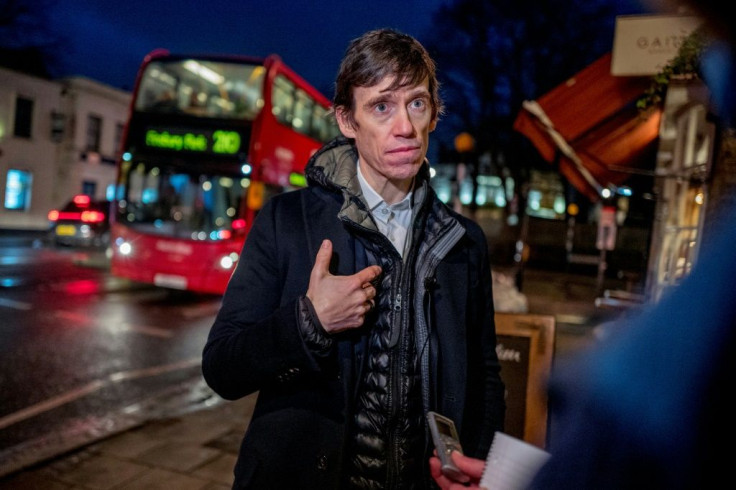On Foot And At Home, Boris Johnson's Former Rival Bids For Londoners' Votes

Two decades ago, Rory Stewart walked across Afghanistan, staying with locals along the way. Now he is deploying the same approach to his bid to become mayor of London.
The former Conservative minister and ex-diplomat is criss-crossing the British capital on foot -- and asking Londoners permission to stay on their sofas to better understand their lives.
"All change begins with getting your feet on the ground," he told AFP while on one of his walks through Highgate, a leafy suburb in north London.
It is an unconventional campaign but the 47-year-old is an unconventional politician.
A one-time soldier, Stewart worked as a British diplomat in Indonesia, the Balkans and Iraq, ran a charity in Kabul and wrote a bestselling book about his solo walk across Afghanistan.
His globe-trotting has sparked speculation that Stewart, like his father, was a spy -- something he says he could never confirm.
Stewart went on to become a Conservative MP and minister and last summer challenged Boris Johnson in the race to become their party's leader.
He lost, was expelled from the Tories for challenging Johnson's tough talk on Brexit and is now running against the Labour party's London mayor Sadiq Khan as an independent candidate.
"If you really asked me, would I rather be prime minister or mayor, I would much rather be mayor," Stewart insists, wrapping his cold hands around a hot cup of tea.
London's mayor has a budget of ?18 billion (20 billion euros, $23 billion) and powers over transport, housing, air quality, planning and economic development.
"The mayor of London has huge potential to change things," Stewart tells a group of mostly young volunteers who have joined him to canvass support around Highgate.
His self-filmed videos of his walks around London and his observations -- often about the lack of trees -- have helped make Stewart something of a social media star.
Khan has criticised him for treating Londoners like "natives" with his walking tours, while his #ComeKipWithMe initiative has also drawn accusations of poverty tourism.
But Stewart, who has lived his whole life in the same house in the wealthy district of South Kensington, says his approach has given him invaluable insight.

He recently spent a night in a homeless shelter with 10 other men, who spoke to him of their various problems with addiction, failed relationships and mental health.
"Clearing my bed away at six in the morning, talking to them about how they got there -- I discovered things you'd never find out from a formal policy briefing," he told AFP.
Stewart, who is married with two young sons, says he would continue his overnight stay initiative even after being elected.
"You talk to them through the night, you wake up, make a cup of tea with them in the morning. And people open up in a way that they don't if you just knock on the door," he said.
Homelessness and affordable housing are big issues for Londoners, as is knife crime, and one young woman approaches Stewart to say she no longer feels safe out on her own.
He says he will quit as mayor if he fails to cut violent crime within two years, and has promised a tripling of local police officers.
But police numbers have fallen in the past decade due to spending cuts imposed by the Conservative government -- in which Stewart served as a minister for five years.
There is no great love for the Tories in much of pro-European, multicultural London, and Stewart is keen to emphasise his freedom from party political ties.
"I'm not a Conservative. I'm an independent. And I'm not really a professional politician," he insisted.
But without a party's resources and staff, Stewart faces an uphill struggle to win the mayoral election in May.
The most recent opinion poll, in November, put him in third place behind Khan and Conservative candidate Shaun Bailey.
He believes the voting system, which offers a choice of second preferences, could help -- and is ready for the fight.
"The next 10 years after Brexit will be a challenging period for London," he tells the activists under the dim light of a Tube sign.
"We need a very energetic, intelligent, brave, active administration -- not a political administration."
© Copyright AFP 2024. All rights reserved.





















